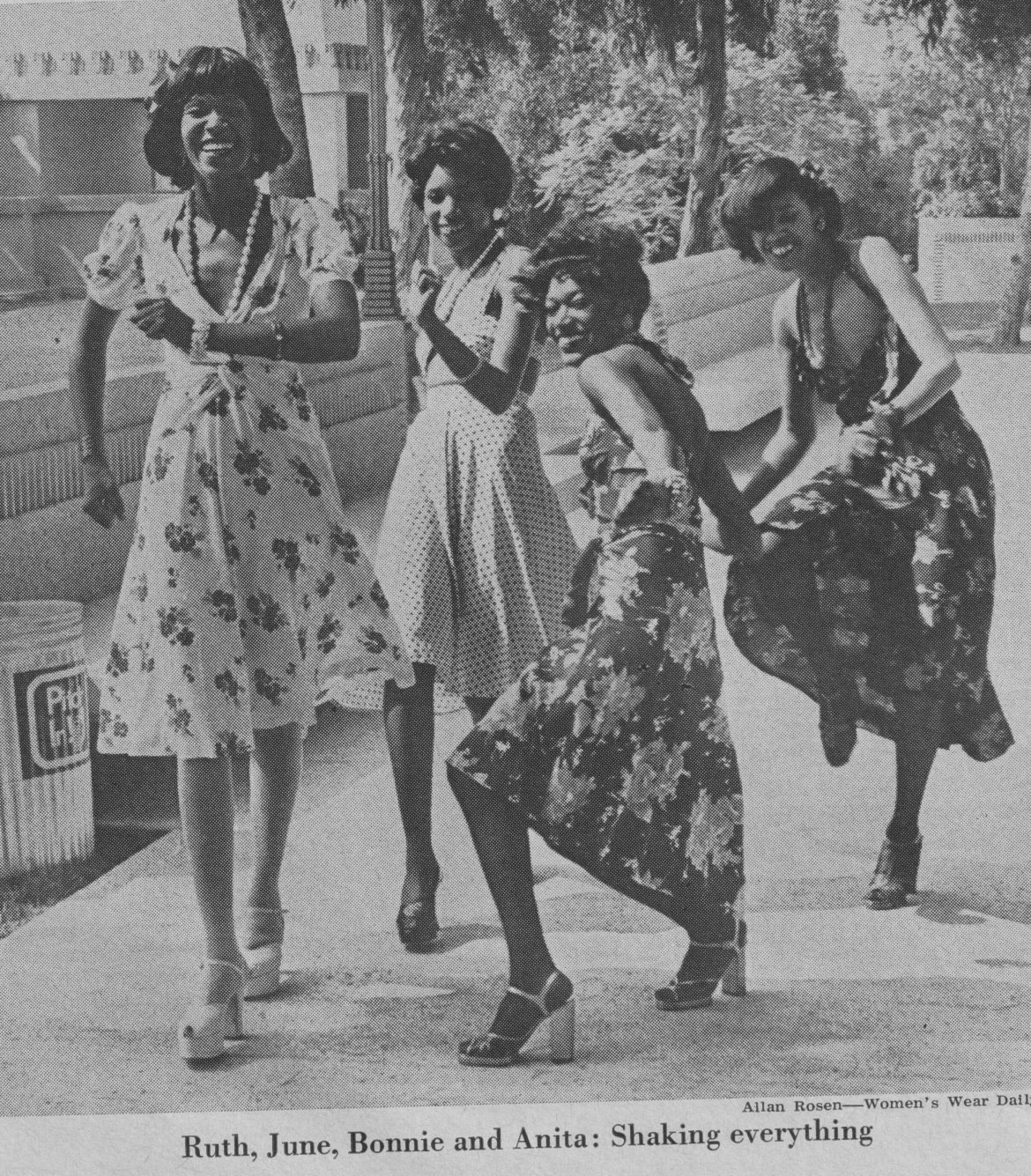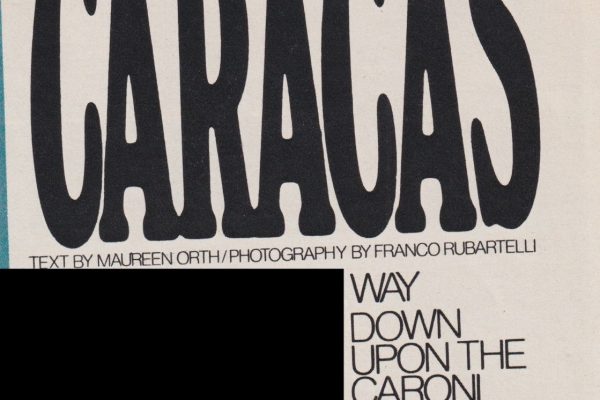Original Publication: Newsweek, August 20, 1973.
Only three months ago the Pointer Sisters – Ruth, 27, Anita, 25 and Bonnie, 23, and June, 19 – were stuck in the Oakland, California, ghetto, singing back-ups to other people’s records and wearing thrift-shop dresses. Then pow! Suddenly a singer canceled at Los Angeles’ Troubadour club, and the Pointer Sisters, who had never performed as an act together before, became last-minute replacements – and instant dynamite.
“We didn’t even know how to give a show,” says Ruth, “but it was Judgement Day. We just shook everything we could shake.” The largely show-business audience was astounded and roared its approval as the sisters sassily vamped their way through bebop, soul, gospel and scat, running past Billie Holiday, the Andrews Sisters, Aretha Franklin and Bette Midler. Next they broke Midler’s attendance record at San Francisco’s hip showcase, The Boarding House. Then TV grabbed them; in two months the Pointers have appeared on Helen Reddy, Johnny Carson, the Midnight Special, with Flip Wilson coming up. Vogue and Playboy are planning to feature them; their album, “The Pointer Sisters,” on Blue Thumb, has jumped 69 slots on the charts in three weeks, and the Ladies of Hadassah have invited them to their fall convention. The four preacher’s daughters are this year’s hottest new musical act.
“We all just harmonized naturally,” says Anita. “When we were little we’d sing in people’s front years and they’d throw nickels and dimes at us.” But their father’s congregation in West Oakland, the Church of God, didn’t allow gospel singing, dancing, or even listening to the radio. As a result, the sisters grew up with few records and no preconceived musical style. Today they easily switch from Lambert, Hendricks, and Ross’ “Cloudburst” to Willie Dixon’s “Wang Dang Doodle” to their own compositions, without reading a note of music. “They are the closest vocal group to jazz since the rock era began,” wrote Jon Hendricks in an ecstatic review. “They sing my lyric so good I want to punch them in the mouth.”
It’s the Pointers’ outrageous performing style as much as their rich, powerful voices that gets black, white, young, and old up out of their seats. The tall, lanky sisters prance out in marcelled hair, feather boas, floppy hats, ’40s dresses and clunky jewelry. This trunk-funk style is a combination of Butterfly McQueen, Billie Holiday and Flip Wilson’s Geraldine. It’s a long way from Motown and the Supremes.
The Pointers’ style evolved strictly from hunger. Both parents were preachers – Mother Pointer is a janitor too – they were too poor to feed and clothe six children. (The two Pointer brothers went to college on athletic scholarships and became basketball All-Americans.) So the girls outfitted themselves from secondhand stores, never dreaming junk would soon become chic. “Sometimes Bonnie looked so ridiculous,” said Anita, “the school would send her home. They thought she was drunk or stoned.”
Desperate: Ruth and Anita married right out of high school and are now divorced. Bonnie and June fled to San Francisco’s Haight-Ashbury hippie colony and began singing as “The Pointers, a Pair.” Their religious family was exasperated. “Our parents took out insurance on us,” giggles Bonnie, “because they thought we’d end up dead.”
Instead they wound up in Houston, stranded with no money after a small-time promoter promised jobs. Bonnie found the name of San Francisco record producer David Rubinson on a card in her pocket. Desperate, she called and said, “You don’t know me, but help!” Rubinson sent them the air fare home and got them work as back-up singers. After a brief unsuccessful stint on Atlantic Records where they were promoted as rhythm-and-blues singers, Rubinson took the sisters under his wing, introducing them to Lambert, Hendricks and Ross scat-bot music and the whole ’40s beat. Soon he got them signed on Blue Thumb, a record label noted for breaking imaginative new acts. “The Pointers are show business,” says Rubinson, who’s poured over a hundred thousand dollars into launching the Pointers by paying for everything from trunkfuls of old gowns to braces on June’s teeth. “We’re bringing show business to people who haven’t seen anything but rock ‘n’ roll.”
The vivacious Pointers can’t believe their success. “We’re the biggest things to come out of the Oakland ghetto since the Panthers,” quips Bonnie. Asked if they mind the grind of touring, the Pointers look incredulous, and, eyeing their seedy hotel suite, chorus, “Are you kidding? This place is de-luxe!”
Proudest of all is Mrs. Pointer. For twenty years she’s worked the night shift cleaning the Oakland Public Library. Now she gives one of the display cases an extra lick. It contains an exhibit titled “The Pointer Sisters – an Oakland family.”
This article is typed from the original material. Please excuse any errors that have escaped final proofreading.




No Comments